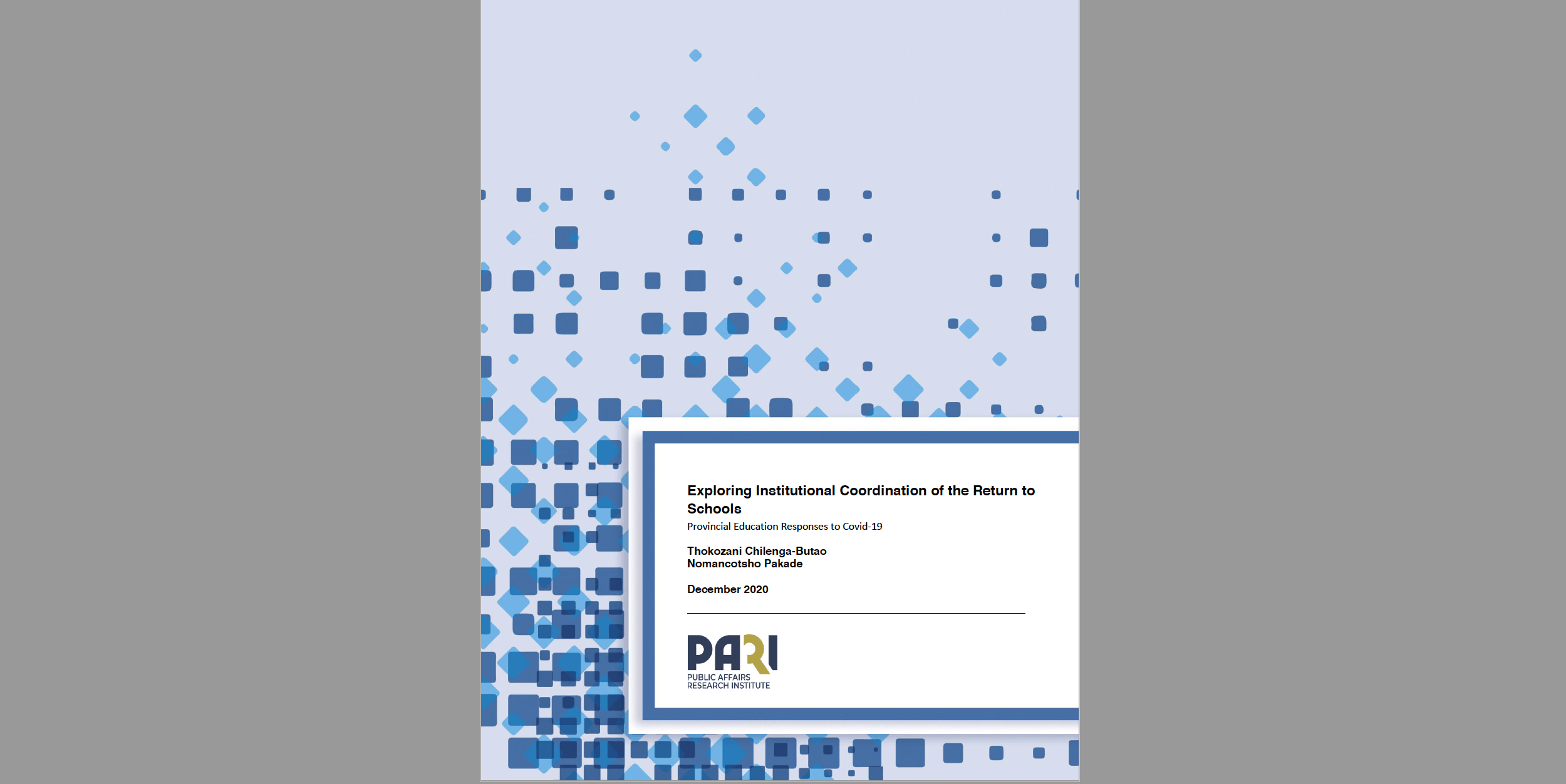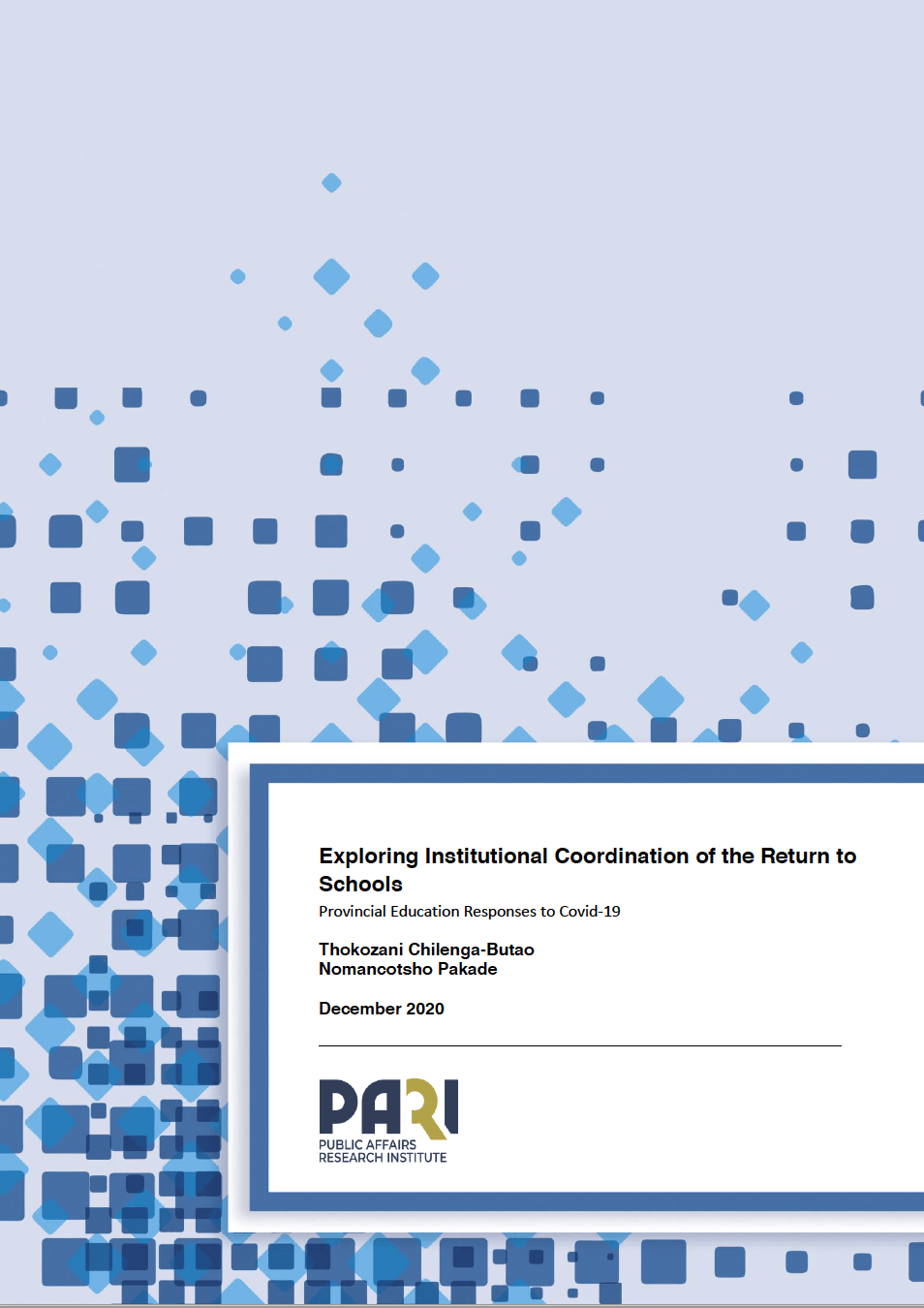Abstract
South Africa’s basic education system, like many across the globe, has been impacted by the deadly Covid-19. Between March and August 2020, many public ordinary schools remained shut due to the lockdown in the country. Based on interviews with provincial education officials in the Eastern Cape and Western Cape, as well as other education stakeholders, this Working Paper finds that the reopening of schools in these South African provinces was predicated on three factors. The central factor is institutional coordination, whereby various education organisations and government departments facilitated the reopening of schools using a combination of their capacities and resources. Institutional coordination was not only integral to reopening schools; it also raises critical questions about South Africa’s intergovernmental system. The second factor is the development of new capacities by both PEDs. Both the PEDs developed new capacities in their provinces; partly as a result of harnessing capacity and resources through institutional coordination, and partly as a result of the nature of the pandemic which forced PEDs to find ways of reopening schools and providing education related services. The third factor is the role and relevance of teachers. The immense responsibilities placed on teachers during a pandemic not only contradicted some public sentiments that teachers were reluctant to reopen schools, it also demonstrates how current policies for teacher availability, placement and training have failed. Ultimately, this Working Paper argues that the pandemic has produced an opportunity for some change in the capacity of PEDs and teaching policies in South Africa.
Keywords: Covid-19, Institutional Coordination, Teacher Availability, Intergovernmental Structures



